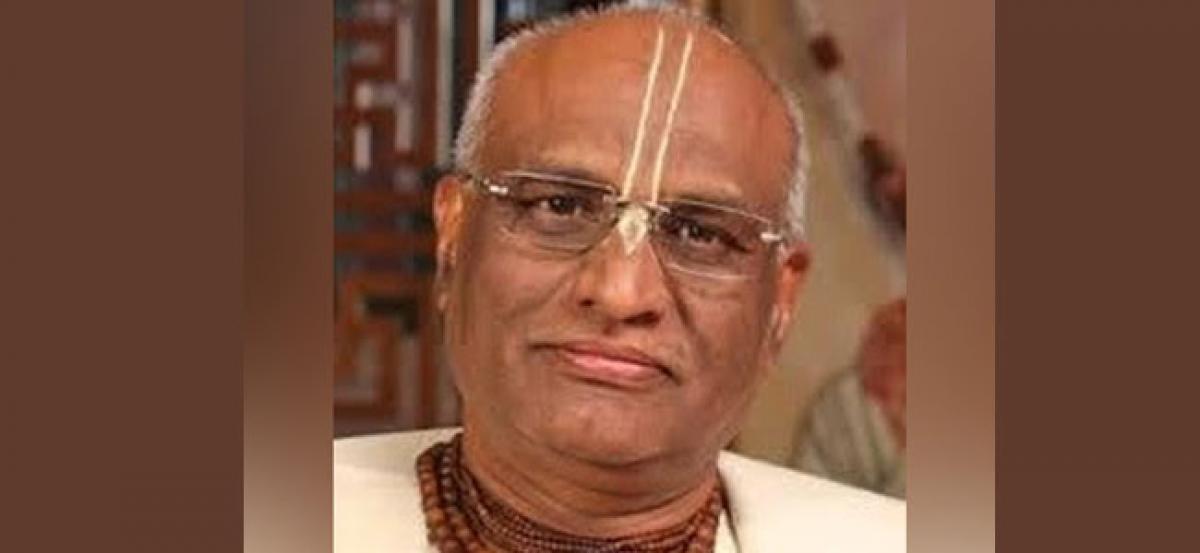Live
- DEO suspends teacher accused of sexual assault
- PM ‘cursing’ Congress out of despair: Maharashtra Cong Chief
- Applications are invited for Junior Colleges Scheme District Scheduled Castes Development Officer Ramlal
- A nomination was filed on the second day for the Nagar Kurnool parliamentary seat
- SP Gaikwad inspected the Telangana Amarnath Saleswaram Jatara yatra arrangements
- Rahul Gandhi's decision to contest from Wayanad shows 'lack of confidence': BJP President Nadda
- IPL 2024: Delhi bowlers will go after all of SRH’s top-order batters, says head coach Ricky Ponting
- At Amroha rally, PM Modi sends out ‘meaningful’ message for Muslims and Hindus
- Tripura records highest 79.83 pc voter turnout in Northeast
- The government has to clear the confusion
Just In

Nelson Mandela once said, \"Education is the most powerful weapon which you can use to change the world.\" - A self-explanatory quote meticulously justifying the vitality of education in contemporary society.
New Delhi : Nelson Mandela once said, "Education is the most powerful weapon which you can use to change the world." - A self-explanatory quote meticulously justifying the vitality of education in contemporary society.
Education is imperative as it helps in mitigating most of the challenges faced in one's life, thus, enabling individuals to make a difference and be the change makers.
In this regard, Madhu Pandit Dasa - Chairman of the Akshaya Patra Foundation shares his views on how to bring every child to school.
The 'right to education' is universally affirmed in numerous international human rights treaties. Worldwide, most governments, including Government of India, have enshrined a provision for the right to education in their national constitutions.
In India, a lot has been done in this direction, but we are far away from the target. According to the UNESCO's Education for All (EFA) Global Monitoring Report on out-of-school children, over 1.4 million children aged six to eleven in India are out of school.
Considering that a child is a future of the country, it is mandatory to bring every child to school. It is significant to identify why children remain out-of-school and address the underlying reasons. Some of the major reasons listed are distance, lack of infrastructure and lack of funds to enable them to gain proper education, instead of having to struggle and earn a living to fill their stomach.
Education is the basic need of every child. It is interesting to note that India has lesser number of schools considering the school going populace. Building more schools is one way which will give an option for every child of certain education. Increasing the number of schools for the differently-abled will also help to build an inclusive society.
The school infrastructure also plays a key role in enrolment and attendance. Building of toilets, for instance, will ensure that adolescent girls will have access to safe and hygienic sanitation at school and will not be forced to drop out.
It's not just important to improve the density of schools and teachers, but also crucial to ensure that there are incentives for them to attend school. When considering rural parts of Jharkhand, Bihar and Uttar Pradesh, teacher absenteeism rate is considerably high.
It will be prudent to focus on this concern. As per a survey of primary schools in India, 25 percent of teachers in government primary schools are absent on a typical working day. Rate of absence vary from 15 percent in Maharashtra to 38 percent in Bihar, and 42 percent in Jharkhand.
As per 2017 Social Progress Index (SPI), India ranks lower than Nepal and Bangladesh, standing at 93rd position among 128 countries. In the stated report, the country ranked 100th in foundations of basic well-being, which included access to basic knowledge and primary school enrolment.
In the case of mid-day meal schemes, it has been proved that the promise of a meal can do wonders. Likewise, the poverty rate in the country can also be curtailed if we ensure that every child is educated, regardless of the gender.
Such initiatives will confirm successful gender parity in education, which will reap substantial benefits in health, equality, and employment opportunities.
More initiatives to alleviate societal maladies along with the ongoing welfare schemes, can work as a big boost in increasing the rate of education in India. It will be sensible to focus on overcoming the obstacles in education sector, and bring every child to school.

© 2024 Hyderabad Media House Limited/The Hans India. All rights reserved. Powered by hocalwire.com







